STRIKE WITCHES – 11
 |
 |
 |
 |
 |
 |
「空へ…」 (Sora he…)
“To the Sky…”
Episode at a Glance:
With the formation of the 1st Special Assault Team, Warlock, the Strike Witches are disbanded and sent home to their respective countries.

 |
 |
 |
 |
 |
 |
「空へ…」 (Sora he…)
“To the Sky…”
Episode at a Glance:
With the formation of the 1st Special Assault Team, Warlock, the Strike Witches are disbanded and sent home to their respective countries.
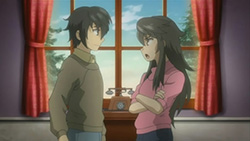 |
 |
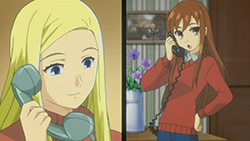 |
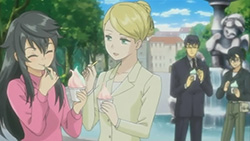 |
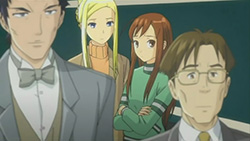 |
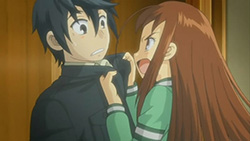 |
「偶然の旅行者たち」 (Guuzen no Ryokousha-tachi)
“Unexpected Travelers”
Episode at a Glance:
Practicing for the dance party with her friend Meg, Lillia figures she could’ve made Treize go as her partner if he were a student at her school.
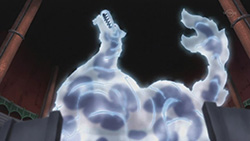 |
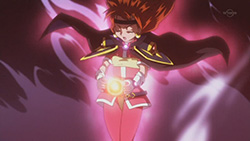 |
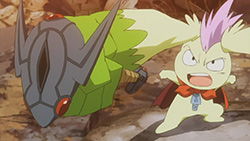 |
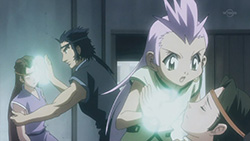 |
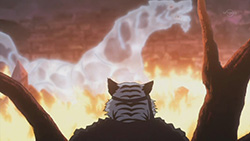 |
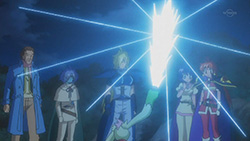 |
「Keep out しのびよる魔獣!」 (Keep out. Shinobiyoru Majuu)
“Keep out. The Evil Beast Draws Near!”
Episode at a Glance:
With Zanaffar fully resurrected after absorbing Gioconda, Lina and the others find out that the silver beast obtained all her knowledge and experiences too, allowing it to speak.
 |
 |
 |
 |
 |
 |
「鶺鴒紋消失」 (Sekireimon Shoushitsu)
“Sekirei Crest Erasure”
Episode at a Glance:
Sensing that a group of Sekirei and Ashikabi are on the move, Haihane decides to go check it out, even though Karasuba says to leave it up to the Red Sekirei.
To coincide with the release of the single last week, I decided to post the PV for this song. Titled “Aru ga Mama” 「あるがまま」 (As It Is), this song sounds pretty mellow and laid back like I mentioned before. Out of the two Nabari no Ou ending themes, I probably like ELISA’s HIKARI a little bit more, but the guitar acoustics in this song have a really slow, kind of rough, yet pleasant melody to it. I have to admit that I haven’t heard of Anam & Maki prior to this song though. As for the PV itself, it has that home video kind of feel to it, which may seem kind of cheap, but I find it somewhat fitting given the tempo of this song.
For those of you following Nabari no Ou (either via my summaries or on your own in lieu of subs), you’re probably aware of the emphasis on the friendship between Miharu and Yoite. Given how the ending sequence for this song focuses entirely on those two in a very peaceful setting, it’s like a wishful conclusion to their actual ongoing struggle. As such, I think this song can turn out to be really hopeful or really depressing later on. In any case, feel free to watch the second ending below if you haven’t seen it already. (Click “Show Nabari no Ou ED2” to see the video.)
 |
 |
 |
 |
 |
 |
「その 栄光の勝利を目指して…」 (Sono Eikou no Shouri wo Mezashite…)
“Aiming for that Glorious Victory…”
At a Glance:
In preparation for the 3-on-3 charity mini soccer tournament tomorrow, Aika brings Akari and Alice out to practice, even though they’re unaware that they’re participating.
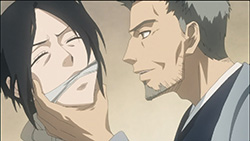 |
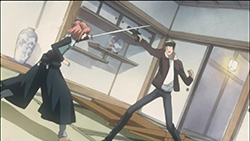 |
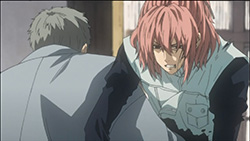 |
 |
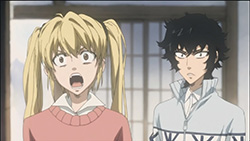 |
 |
「発動」 (Hatsudou)
“Invocation”
Episode at Glance:
Having brought Miharu and Yoite in, Yukimi casts off his actions as an attempt to make them repent and apologize for their actions, which Hattori accepts, but doesn’t seem to believe.
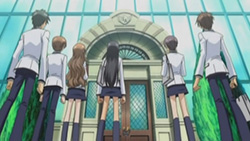 |
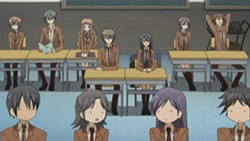 |
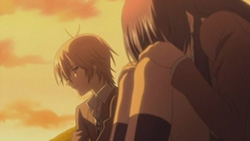 |
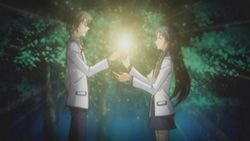 |
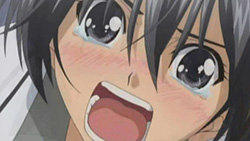 |
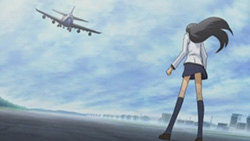 |
「SA・FA」 (SA / FA)
“SA / FA”
Episode at a Glance:
Arriving at school, Hikari and the others are surprised to learn that the S.A class has been abolished.
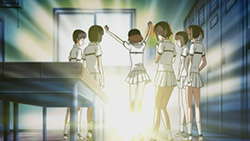 |
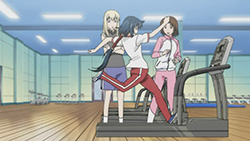 |
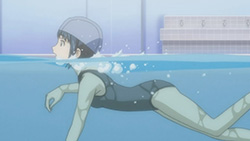 |
 |
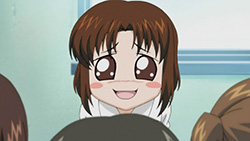 |
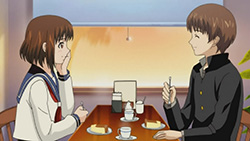 |
「お稲荷さま。だいえっとする」 (Oinari-sama. Daietto Suru)
“Oinari-sama. Goes on a Diet”
Episode at a Glance:
After badminton practice, Misaki weighs herself with the rest of the girls and becomes depressed because she gained weight over the Christmas holidays.
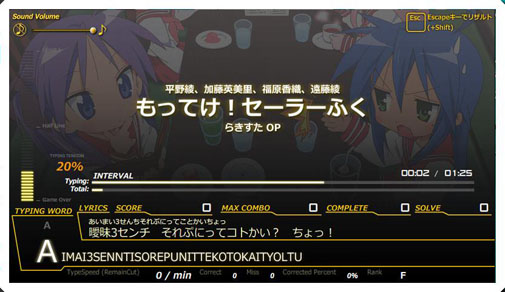
Here’s something to try if you’re bored — just try to not get addicted in the process. You have been warned.
If haven’t gone off and started playing already, it’s a Flash game I stumbled upon tonight called “Typing Mania 4”. Now the only reason why it gets mentioned here is because it features a very nice assortment of anime songs, which will be the ONLY thing keeping you playing after awhile. For those of you with 100+ words-per-minute typing speeds, I wouldn’t get overconfident too quickly because most of the lyrics are in romaji (ローマ字) and there are quite a few quirks (mentioned below). There are some English songs as well though, so give ELISA’s “Euphoric field” from ef – a tale of memories. a try if you like.
Each song is ranked with a “Typing Level” ranging from 0 to 99. If you want to experience some level 99 insanity right away, give Lucky Star‘s “Motteke! Sailor Fuku” 「もってけ!セーラーふく」 a go (pictured above). Even eufonius’ “Reflectia” 「リフレクティア」 from true tears is pretty tough, and that’s ONLY a level 9 song. With that said, you might want to start off with something reasonable like Nakajima Megumi’s Aimo 「アイモ」 from Macross Frontier, so you don’t end up hating the game right away. Most of the time, you’ll probably be staring at your monitor in awe wondering how anyone’s ever supposed to play this properly, but as with Rock Band, you just know there are people out there who will go to lengths to master this kind of stuff.
Note: You can access more songs with the left and right arrow keys.
*UPDATED* Now if you’re actually serious about doing well in this game, there are some things to keep in mind, especially if you’re familiar with some Japanese. However, if you’re only looking at the letters and not the Japanese lyrics, then these probably won’t help much.
– The particle は has to be typed out as “ha” and not “wa”, which is an accepted romanization of it.
– The hiragana し is “si” rather than “shi”. You can type “shi”, but you’ll get a miss for the “h”.
– The hiragana つ is “tu” rather than “tsu”. You can type “tsu”, but you’ll get a miss for the “s”.
– The hirangan じ can be typed as “ji” or “zi”.
– The hiragana ふ can be typed as “hu” or “fu”.
– The hiragana しゃ, しゅ, しょ are spelled as “sya”, “syu”, “syo”, but you can use “sha”, “shu”, “sho”.
– The hiragana ちゃ, ちゅ, ちょ are spelled as “tya”, “tyu”, “tyo”, but you can use “cha”, “chu”, “cho”.
– The katakana シェ and チェ are spelled “sye” and “tye”, but you can use “she” and “che”.
– If the hiragana ん appears in the middle of a word, you can simply type “n” instead of “nn”.
– If a small っ appears at the end of a word to shorten the last vowel, you have to type “ltu”. e.g. ぎゅっ
– None of the Japanese lyrics have spaces.
– When spaces do appear, they’re displayed as underscores, but you can use Space.
– You do not need to capitalize English words.
Let the madness (and frustration) begin!